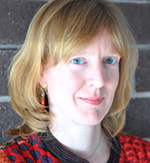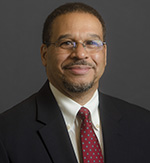Prioritizing vaccines for people experiencing homelessness is vital to an equitable and effective public health response, write Margot Kushel, Barbara DiPietro, and Bobby Watts
Ensuring effective access to vaccinations for people experiencing homelessness is essential to protecting public health and safeguarding the health of a vulnerable, yet often overlooked population. Achieving this goal with covid-19 vaccines will take more than a one size fits all, large scale approach.
Based on the experiences of a broad range of Health Care for the Homeless programs and many other homeless services providers across the US, we’d argue that successfully vaccinating the more than 1.5 million people who stay in shelters and encampments each year requires four elements: establishing people’s eligibility to receive the vaccine, ensuring equitable access for disproportionately impacted communities, adopting a tailored approach to reaching them, and committing to being trustworthy.
Homelessness increases a person’s risk of contracting and becoming ill with covid-19. Crowded living conditions in shelters and encampments make social distancing and hand hygiene difficult, and are an ideal transmission vector for infectious disease. A high prevalence of chronic illnesses (such as cancer, lung disease, diabetes) among this group increases the likelihood for severe illness, and behavioral health conditions that interfere with non-pharmacological interventions such as mask wearing also increase the risk of acquiring SARS-CoV-2 infection. Research shows there have been numerous large scale outbreaks at homeless shelters, as well as higher case fatality rates among people experiencing homelessness.
Getting vaccines to this specific population is critical to stemming the pandemic’s spread, yet this has been a challenge for several reasons. So far in the US, socially vulnerable areas have received fewer covid-19 vaccines than wealthier jurisdictions. Many US states have adopted rigid priorities based largely on age or specific health conditions, or placed other restrictions that prevent this population from gaining access. Most communities are also focused on large scale, drive-thru vaccination events that are not accessible to people with limited mobility, without cars or reliable transportation, or insufficient access to online registration sites. The politics around prioritization for the vaccine has also contributed to this population being removed from priority lists, or simply not acknowledged at all in states’ plans.
The US is expected to increase its vaccine supply, which will mitigate some of these issues. Yet a greater volume of vaccines will not automatically translate into greater vaccination rates among a group of people who have been subjected to significant stigmatization and discrimination in our society.
While much attention has been given to the concept of “gaining trust,” the medical community might consider what it means to be trustworthy. People who are homeless often report poor quality of care, a lack of respect, and incomplete (or premature) discharges when seeking healthcare services. Over half of those experiencing homelessness in the US are black, indigenous, or other people of color (and in many communities, it is the vast majority), where systemic racism further compounds the stigma of homelessness in the healthcare system. Increasing “vaccine confidence” fundamentally means that we as healthcare providers must improve our systems of care to earn our patients’ trust. This concept is not limited to vaccines, but rather the delivery of all types of services.
To improve vaccine access and uptake by people experiencing homelessness, policy makers, public health authorities, and service providers should take the following four actions:
- Establish eligibility: Immediately prioritize this entire population so they are eligible to receive the vaccine.
- Ensure equitable access: Collect data on race/ethnicity as well as housing status, document disparities in access, and revise approaches to actively reduce disparities in access to the covid-19 vaccine.
- Adopt a tailored approach: Remove all policy restrictions that currently inhibit the flexible and efficient delivery of vaccines to homeless services sites, such as shelters, encampments, and food programs. Consider incentives (e.g, gift cards, socks, food, etc.) to help convey the importance of getting vaccinated. Provide medical respite care or other accommodations for those experiencing significant side effects. If using a two dose regimen, clearly communicate the date/time for the follow-up dose and plan to assist clients with transportation or other needs to ensure completion of both doses.
- Commit to being trustworthy: Talk directly with people who are homeless about their concerns, actively respond to the issues they raise, and engage them as partners when planning vaccine events. Create opportunities for trusted role models, such as community health workers, consumer leaders, peer advocates, and others, to become “Vaccine Ambassadors.” Hold group discussions to share information ahead of scheduling vaccine events and incorporate their feedback. Share information about potential side effects and communicate plans for their care. More broadly, improve systems of care so that all patients receive high quality care with dignity and respect.
Placing an urgent priority on vaccinating people experiencing homelessness is vital to an equitable and effective public health response. Adopting tailored approaches to reach this vulnerable population will ensure greater vaccine take-up rates and better health outcomes, which is vital to achieving broader herd immunity and ending the current pandemic.
 Margot Kushel is a professor of medicine at the University of California San Francisco and San Francisco General Hospital, director of UCSF Center for Vulnerable Populations, and director of UCSF Benioff Homelessness and Housing Initiative. Twitter @MKushel
Margot Kushel is a professor of medicine at the University of California San Francisco and San Francisco General Hospital, director of UCSF Center for Vulnerable Populations, and director of UCSF Benioff Homelessness and Housing Initiative. Twitter @MKushel
Competing interests: none declared.
 Barbara DiPietro is the senior director of policy at the National Health Care for the Homeless Council. Twitter @BarbaraDiPietro
Barbara DiPietro is the senior director of policy at the National Health Care for the Homeless Council. Twitter @BarbaraDiPietro
Competing interests: none declared.
 Bobby Watts is the chief executive officer at the National Health Care for the Homeless Council and a member of the Biden-Harris covid-19 Health Equity Task Force. Twitter @BobbyWatts6
Bobby Watts is the chief executive officer at the National Health Care for the Homeless Council and a member of the Biden-Harris covid-19 Health Equity Task Force. Twitter @BobbyWatts6
Competing interests: none declared.
